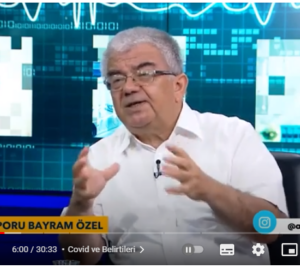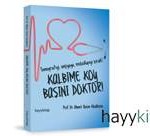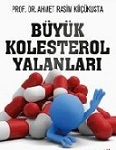AŞININ SAĞLADIĞI BAĞIŞIKLIK NE KADAR SÜRER

Dikkat: Yazının sonunda ek var!
***
Bu makale aşı şirketlerinin plasebo grubundakilere birkaç ay sonra gerçek aşı yaparak aşıların uzun vadedeki etkinlik ve emniyetlerini kesin olarak bilinmez hale getirdiklerini, aşıların sağladığı bağışıklıkla enfeksiyon geçirilerek kazanılan bağışıklığın farklarını çok güzel anlatıyor.
MARTIN KULLDORFF: “CDC tarafından üretilen sözde bilim iddialarına rağmen, aşılar kısa vadeli koruma sağlarken, enfeksiyon tarafından oluşturulan koruma hem kalıcı hem de geniştir“. Kaynak: https://twitter.com/MartinKulldorff/status/1456956443475775493?s=20
***
Sebastian Rushworth‘ un makalesi:
Ne yazık ki ilaç firmaları, plasebo grubunda bulunanlara sadece birkaç ay sonra aktif Kovid aşısı yaparak araştırmalarını erken bitirmeye karar verdi. Bu, randomize çalışmalardan elde edilen Kovid aşılarının uzun vadeli takibinin olmadığı ve olamayacağı anlamına geliyor. Bu, aşıların uzun vadede ne kadar güvenli ve etkili olduğunu anlamaya çalışırken, bunun yerine tamamen gözlemsel verilere güvenmek zorunda kaldığımızın resmidir.
İngilizce bilmeyenler, bilenlere sorsunlar!
It’s unfortunate that the drug companies decided to end their trials early, by giving active covid vaccine to the members of the placebo group after just a few months. It means that there is no long term follow-up of the covid vaccines from randomized trials, and there never will be. This means that we are instead forced to rely entirely on observational data as we try to understand how safe and effective the vaccines are over the longer term.
That is why a recent study out of Sweden is so very interesting. It is currenly available as a pre-print and can be found here. The purpose of the study was to determine how effective the vaccines are at protecting against covid over the longer term (i.e. after more than a few months). This was a registry based study, so it’s not surprising that it is coming out of Sweden. Sweden is generally acknowledged as being better than any other country at collecting and sorting large quantities of population data and using it to produce these types of studies.
The authors of the study began by identifying all people residing in Sweden who had been fully vaccinated against covid-19 by late May 2021. At that time, three different vaccines were being used in Sweden: Moderna, Pfizer, and AstraZeneca. The vaccinated people were then matched individually against people of the same age and gender, and living in the same municipality, who hadn’t been vaccinated. In total, 1,684,958 individuals were included in the study. They were followed until October to see if they developed covid-19.
So, what did the study show?
As would be expected, the vaccines were very effective at preventing symptomatic covid around two months out from vaccination. This is what the randomized trials showed, and it’s the reason the vaccines were approved for use. Overall, the reduction in relative risk at 31-60 days out from vaccination was 89%.
However, after those first two months, there was a rapid decline in efficacy. At four to six months, the vaccines were only reducing the relative risk of infection by 48%!
This is pretty interesting when we consider that governments had initially set the bar for approving the vaccines at a 50% relative risk reduction. So, if the trials had been required to run for six months before presenting results instead of only running for two months, then the vaccines would have been considered too ineffective to be worth bothering with, an would never have been approved.
Well, that’s not quite true. One vaccine did still provide a better than 50% relative risk reduction at six months – the Moderna vaccine. At four to six months, the relative risk reduction with the Moderna vaccine was 71%. Pfizer was at the same time point only offering a 47% reduction in risk, and AstraZeneca was at that point not doing anything whatsoever to lower risk.
It makes sense that the Moderna vaccine would offer better protection than the Pfizer vaccine. Although the vaccines are virtually identical, the dose in the Moderna vaccine is three times higher. This is likely the reason why Moderna has been associated with much higher rates of myocarditis, which is why it is no longer approved for use in people under the age of 30 here in Sweden.
So, if governments hadn’t been so hasty to get the vaccines out, and had demanded six months of follow-up rather than two, only the Moderna vaccine would ever have been approved in the first place.
When we go further out than six months, things get even more depressing. By the nine month mark, the Pfizer vaccine is no longer offering any protection whatsoever against symptomatic covid-19. Unfortunately, nine month out data isn’t offered for the Moderna vaccine due to the small number of people for whom that information is currently available, but at six months out, the Moderna vaccine’s ability to prevent symptomatic covid-19 had dropped to only 59%. So there is a continuous decline in effectiveness at each time point measured even for the Moderna vaccine, without any sign of levelling off.
What about if we look at sub-groups, such as the elderly, who are by far the most at risk from covid-19, and therefore potentially have most to gain from vaccination?
People over the age of 80 initially show a good response to the vaccine, with a 73% reduction in relative risk of disease at one to two months out from vaccination. However this drops to only 50% at two to four months, and by six months there is no benefit whatsoever. Even for the middle aged (50-64 years), who have better functioning immune systems and who should therefore respond more strongly to the vaccines, the vaccines are completely ineffective at preventing symptomatic disease by the four to six months mark. The only group for whom the vaccines are more than 50% effective by the four month mark is people under the age of 50 (for whom effectiveness at four to six months is 51%).
Of course, how good the vaccines are at preventing symptomatic disease isn’t really what matters, if by symptomatic disease we usually mean something more akin to the common cold than to the Spanish flu. What really matters is how good the vaccines are at preventing serious disease. So, let’s look at that.
At one to two months out from vaccination, the vaccines provided a 91% reduction in risk of hospitalization or death. By four to six months, that had dropped to 74%. And from six months out, the reduction was down to 42%, although the difference between the vaccinated and unvaccinated group was no longer statistically significant. In other words, at the six month time point it was no longer possible to detect a statistically significant effect of vaccination on risk of hospitalization or death.
As I see it, there are two possible explanations for the rapidly declining effectiveness of the vaccines. The first is that it’s due to the limited immunity produced by the vaccines themselves, and the second is that it’s due to the continued evolution of the virus and in particular the rise of the delta variant. If the second reason is true, then there is no reason whatsoever to give people boosters, because the boosters won’t do anything to improve immunity.
If the first reason is true, then there is a case to be made for boosters, although it feels pretty absurd to give everyone a booster every four months to protect against a virus that for most people is little more than a cold, that 99,8% of infected people will survive, and for which there is now massive natural population immunity, thanks to all the people who have already had covid. Unlike the short-term protection offered by the vaccines, the protection generated by infection has been shown to be both durable and broad, in spite of junk science claims to the contrary produced by the CDC. There is however a pretty good case to be made for regular boosting of the multi-morbid elderly every four months, preferentially with the Moderna vaccine.
So, what can we conclude?
The vaccines are much less effective than was initially believed, and effectiveness declines rapidly. With that being the case, the idea that it’s going to be possible for countries to vaccinate themselves out of the pandemic is clearly nonsense. The only way the pandemic ends is by enough people getting infected and developing natural immunity, which is the same way every prior respiratory virus pandemic has ended.
Kaynak: https://sebastianrushworth.com/2021/11/05/covid-how-long-does-vaccine-based-immunity-last/
***
EK 1 (7.11.2021): KOVİD-19: GÜÇLÜ BİR PANDEMİK CEVAP İYİ VERİLERE DAYANIR
Fiona Godlee:
“Güvenilir ve şeffaf bir şekilde erişilebilir araştırma verilerine sahip aşılara karşı güçlü bir kamu güvenine ihtiyacımız
Dünyanın bu pandemiden kurtulabilmesi için birçok şeye ihtiyaç var: Bunlardan biri, aşıların kabulünün yaygın olması. Bunun için de güvenilir ve şeffaf bir şekilde erişilebilir araştırma verileriyle gerekçelendirilen aşılara halkın itimat etmesi gerekiyor.
Hastalığın gerçek yüküne uygun olarak şeffaf haberleşmeye, iyi dağıtım sistemleri ve küresel olarak adil dağıtıma ihtiyacımız var.”
Kaynak: https://www.bmj.com/content/375/bmj.n2668
***

















Değerli Hocam; doktor değilim ama her yazınızı dikkatle okuyor ve çok faydalanıyorum. Emek ve zamanınızı harcayarak yaptığınız bu çalışma takdire şayandır. Teşekkür ederim…